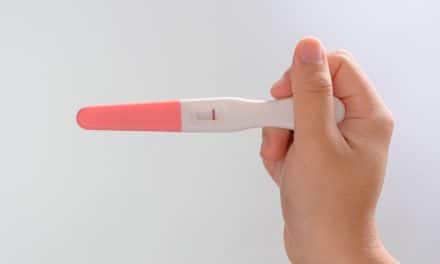Whether you are trying to get pregnant or wish to undergo a fertility treatment, you should know that there are several tests available to assess the risk of genetic alterations in the foetus. You may think this is very unusual or that it is unlikely to happen to you, but it can happen.
One of the most common causes of genetic abnormalities is delayed motherhood, as over the years the oocytes age and genetic alterations or errors are mole likely to occur during cell division and embryo development. Down Syndrome is one of the best-known examples of this. In this case, the problem is the presence of an extra copy of chromosome 21. That is, instead of two chromosomes 21 (one from the father and another one from the mother), as would be correct, there are three. This is why the disorder is called trisomy. Other known trisomies include Edwards’ syndrome and Patau’s syndrome. In the former, there is an extra copy of chromosome 18, and in the latter, of chromosome 13. All these genetic abnormalities result in a variety of functional problems that can sometimes be incompatible with life.
In addition to numerical alterations, small segments of one or more chromosomes may be deleted, duplicated, inverted, have their normal location altered, or be exchanged with a part of another chromosome. These chromosomal alterations can occur spontaneously, when a new being is created, or they can be inherited and passed on from parents to their offspring. If there is a family history, it is easy to assess the risk. But genetic abnormalities can also go unnoticed.
Chromosomal alterations can also cause fertility problems, as nature itself, upon detecting the error, sometimes prevents or stops the development of a pregnancy. Therefore, suffering several miscarriages — called recurrent miscarriages — or accumulating several failed fertility treatments can be a reason for suspicion, either in the case of women or men, or both. In these cases, the parents are advised to carry out a karyotype. This test provides an image of the chromosomes and allows the detection of possible alterations.
There are also diseases caused by mutations in genes, as is the case with so-called “recessive inherited diseases”. These diseases only occur when both parents have a mutation in the same gene, and both pass it on to their child. “What a coincidence!”, you might think. Well, yes, and although it may surprise you, it is not so unusual, as a majority of the population may have — without knowing it — some abnormality of this type. For this reason, all people who have to resort to assisted reproduction treatments with egg or sperm donation are advised to undergo preconception genetic testing. The goal is to find out whether they are carriers of any genetic alterations, in order to select a donor who is genetically “compatible” with them and thus reduce the risk of transmitting this type of disease to their offspring. At Dexeus Mujer we have a specific test for this called qCarrier, which can detect approximately 300 hereditary diseases associated with genetic alterations. You may have heard of some of them, such as cystic fibrosis or haemophilia.
If you have reached this point, you may be wondering: what if the test confirms that there is indeed a genetic problem that may affect the health of my future baby or cause fertility problems? What can be done then? Well, you should ask for individual advice from a genetics specialist, so that they can assess which option might be best for you. In general, the most common options are the following:
- If you got pregnant naturally, it is advisable to carry out a prenatal diagnosis by means of a chorionic villus sampling (CVS) or an amniocentesis, to confirm or rule out whether the baby has any genetic alterations.
- You can choose to undergo In Vitro Fertilisation (IVF) with Preimplantational Genetic Testing (PGT). With this technique, it is possible to study the genetic characteristics of embryos before their transfer to the mother’s uterus, in order to select only those that are healthy and do not carry the alteration in question.
- Another option is to resort to assisted reproduction using sperm or eggs from a donor who is not a carrier of the same disorder as the patient. For this purpose, a carrier test has to be performed beforehand on the patient and the donor.
As you can see, having the support of carrier tests and genetics specialists is essential for any medical centre specialising in gynaecology, obstetrics, and assisted reproduction, both to offer genetic counselling and to detect these types of abnormalities. At Dexeus Mujer we have a specialised Genetic Counselling Unit where you can ask any queries you may have.
What do you know about genes?
To better understand why genetic alterations can cause health or fertility problems, it is important to have a basic understanding of what genes are and what they do:
- Genes are like instruction manuals found inside our cells. They are made up of DNA and arranged in elongated structures called chromosomes.
- Every cell in our body has 46 chromosomes, except for oocytes and sperm cells, which have 23. Thus, when they unite to give life to a new being, they create a cell containing 46 chromosomes: 23 inherited from the mother and 23 from the father.
- The genetic information we inherit from our parents determines some of our physical traits (eye colour, skin colour, height, etc.); but the information contained in our genes also enables us to perform functions that are essential for our bodies to develop and function properly.
- Therefore, any genetic abnormality can lead to health or functional problems, both physical and mental. Some are mild, but others are more serious.













